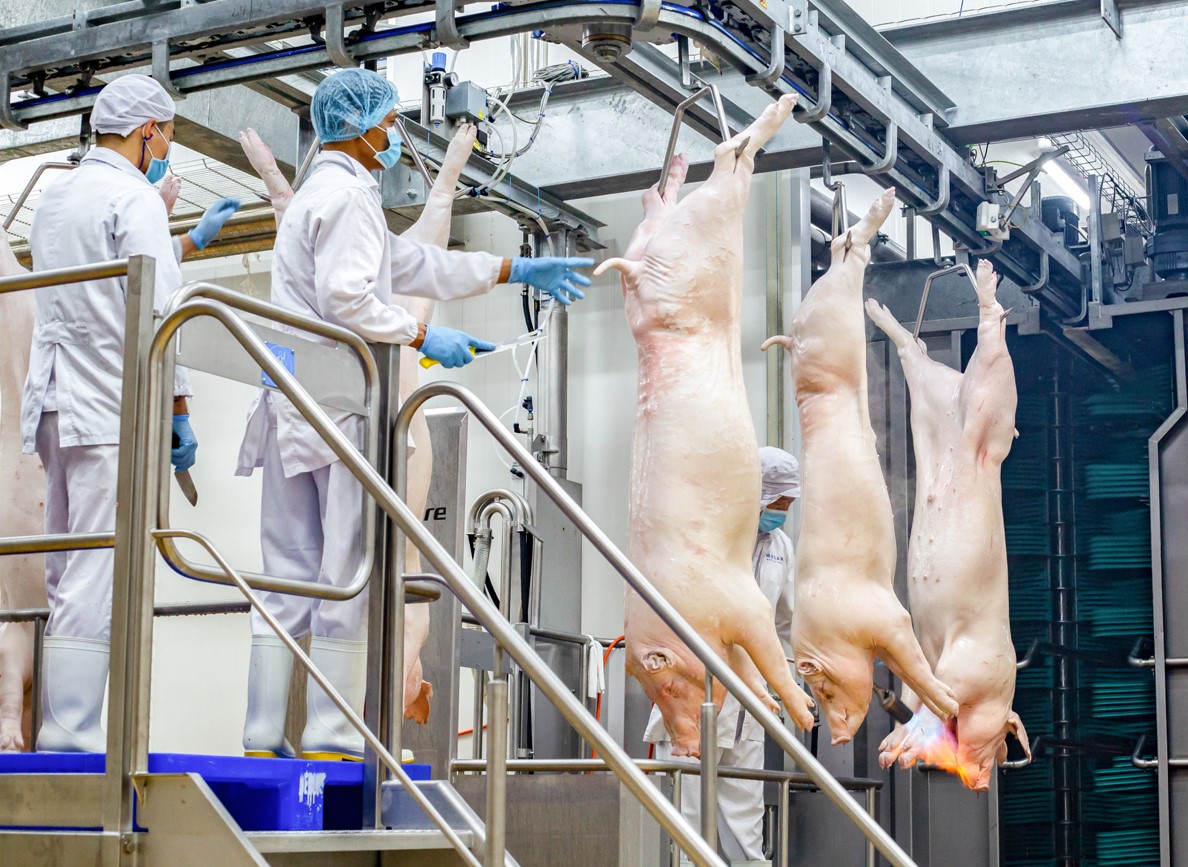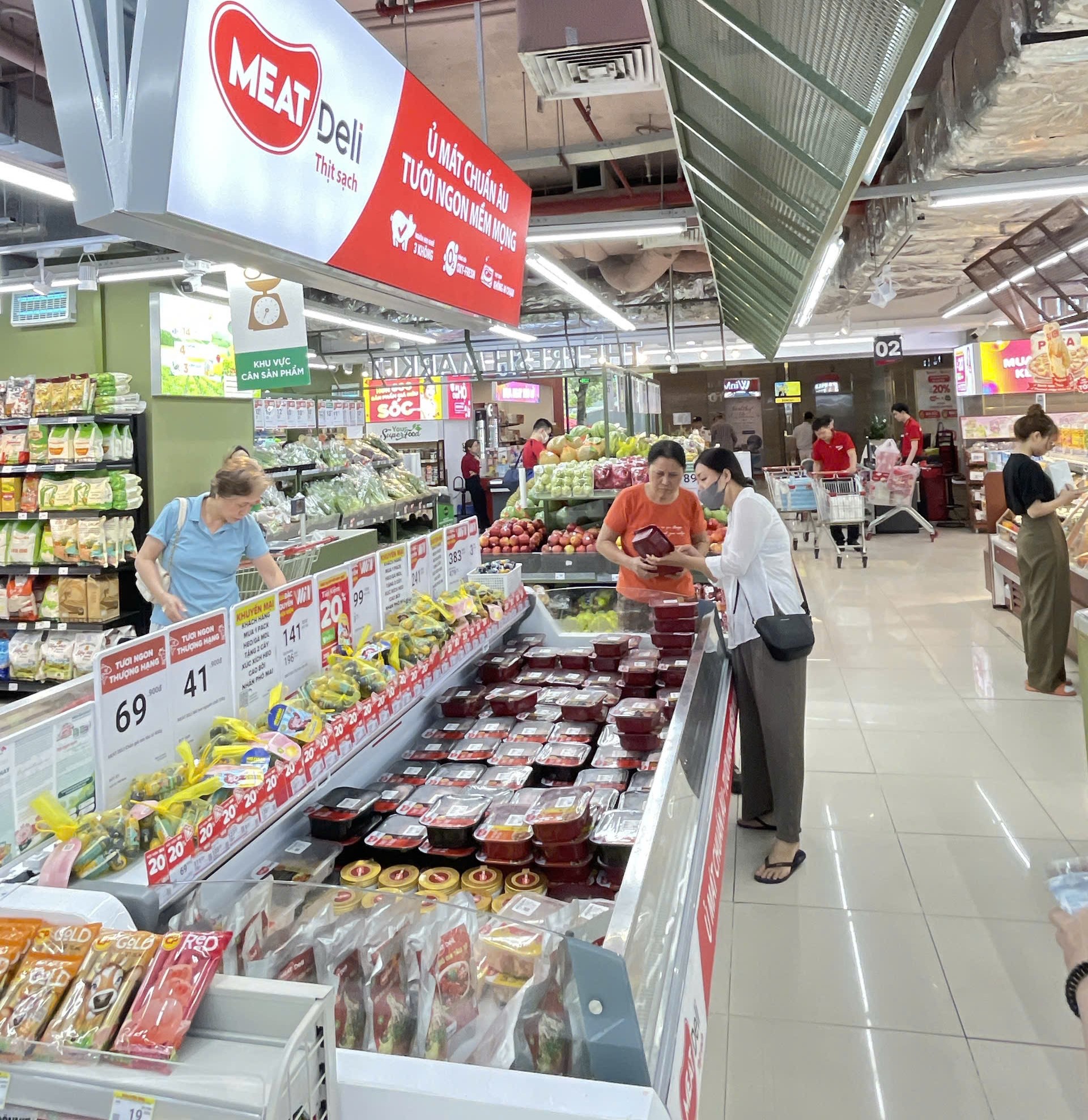Consumer Trend: Prioritizing Safety and Transparency
Pork has long been one of the main protein sources in Vietnamese meals, with per capita consumption reaching an estimated 37 kilograms in 2024-ranking fourth highest globally.
Experts note a clear shift in Vietnamese consumer behavior. While unbranded pork used to dominate more than 90% of the market, certified and traceable meat products are now gaining share, particularly in major cities. Modern families and younger generations are increasingly willing to pay more for organic products, certified labels, or packaging with QR codes for traceability. This reflects a new consumer mindset: eating not just to be full, but to be healthy and confident in the products they consume.
As consumers place greater emphasis on food safety and transparency, controlling the origin and production process of pork has become critical. Each MEATDeli product from Masan MEATLife (a member of the Masan ecosystem, HOSE: MSN) carries a label or QR code that allows consumers to trace the full journey-from the farm where the pigs were raised, to the slaughterhouse, production and packaging dates, and veterinary inspection details.

Expanding Reach Through Modern Retail
Consumers can easily purchase MEATDeli chilled pork at leading retail outlets such as WinMart, WinMart+, and WiN stores, thanks to MML’s strategic partnership with WinCommerce (WCM), Vietnam’s largest modern retail network.
The presence of branded meat in WinMart stores has already delivered strong results. In July 2025, MML’s average daily revenue per WCM store reached nearly VND 2.3 million. If expanded across WCM’s entire network of over 4,200 stores, average daily revenue could reach nearly VND 9.5 billion-demonstrating significant growth potential from the modern retail channel.
MML currently contributes 69% of WCM’s meat category revenue, up from 62% in Q2/2025 and well above prior years. This underscores the growing role of MML in driving growth across Masan’s retail ecosystem.
In August 2025, MML recorded positive business results, with sales volume reaching 14,007 tons, up 12.9% year-on-year. Net revenue totaled VND 999 billion, up 11.1%, reflecting stable demand and increasing contributions from modern retail. Operational efficiency also improved, with EBIT rising 42.9% to VND 50 billion, while net profit grew 60.5% to VND 35 billion. EBITDA reached VND 90 billion, up 18% year-on-year, signaling stronger margins. These results confirm MML’s sustainable recovery post-restructuring, with improvements in both scale and financial performance.
Supply Chain Optimization Through Technology
Masan MEATLife is leveraging Masan Group’s ecosystem to optimize costs, streamline operations, and strengthen data-driven decision-making by adopting modern technology. The WiNARE automated ordering system has been applied to chilled meat and FMCG categories. By the end of 2025, nearly 70% of WCM’s product categories are expected to be automated or semi-automated, with plans to expand into frozen and fresh categories such as seafood, vegetables, and ready-to-eat foods.
Initial results from 614 stores in Ho Chi Minh City show that spoilage in the meat category dropped by almost 2% of revenue between May and August 2025, saving tens of billions of dong in losses each month. At the same time, the product availability rate (DR) improved from 80% to nearly 90% by the end of August 2025, while inventory levels remained efficient-boosting store sales growth.

The combination of shifting consumer trends, technology adoption, and strong distribution networks is opening significant growth opportunities for Vietnam’s branded meat sector in general, and MEATDeli in particular. Technology-driven supply chain management not only optimizes operations but also enhances consumer experience. Alongside a modern retail network, safe and high-quality meat is becoming more accessible to Vietnamese households-forming a solid foundation for the next growth leap of the branded meat market.


